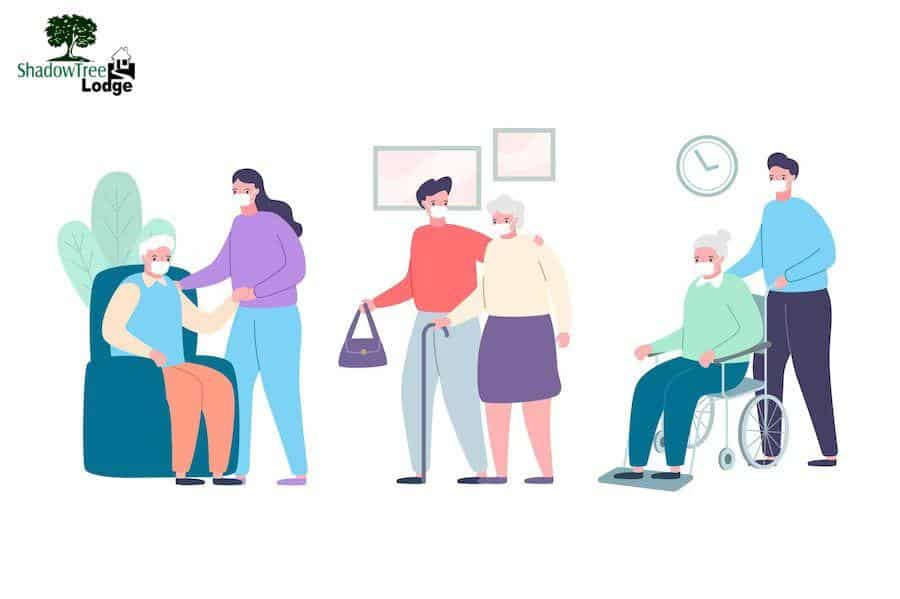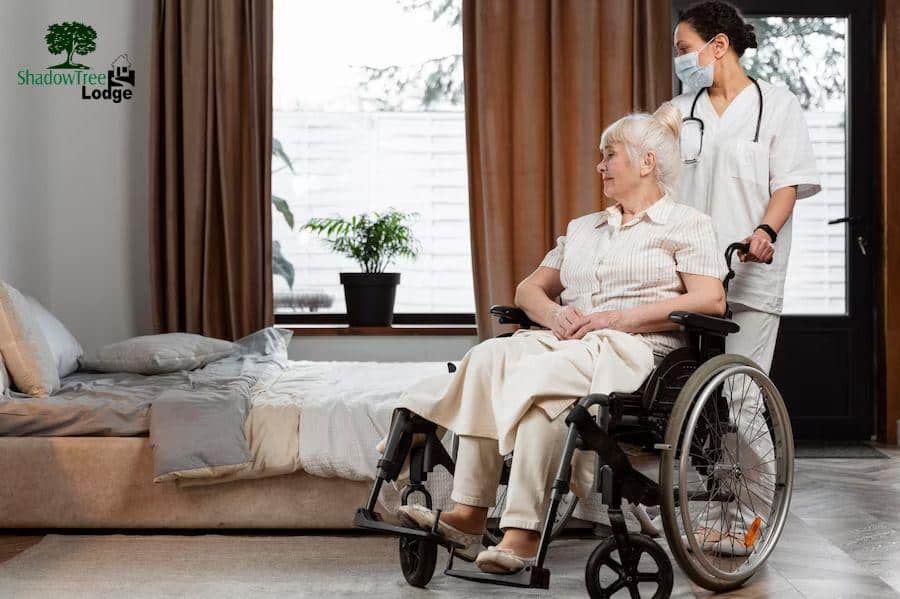When it comes to making decisions about senior care, it’s imperative for one to have a clear understanding of the available options. Assisted living and nursing homes stand as two common choices for individuals in search of specialized care. The intent of this article is to provide comprehensive information on assisted living and nursing homes, assisting readers in making informed decisions for themselves or their loved ones.
Assisted Living: Enhancing Independence and Quality of Life
Assisted living facilities offer a supportive environment for seniors who desire a level of independence while receiving assistance with daily activities. These communities provide a range of services designed to promote the well-being and autonomy of their residents. Let’s delve deeper into the key aspects of assisted living:
Services and Amenities
- Assisted living communities offer an array of services tailored to meet the unique needs of older adults. These may include:
- Assistance with activities of daily living (ADLs) such as bathing, dressing, and grooming.
- Medication management to ensure residents take their medications as prescribed.
- Delicious and nutritious meals prepared by professional chefs.
- Housekeeping and maintenance services to maintain a clean and safe living environment.
- Transportation services for scheduled outings and medical appointments.
- Social and recreational activities to foster social connections and engagement.
Living Arrangements
Typically, assisted living facilities provide private or semi-private apartments that offer a comfortable and personalized living space. Residents have the freedom to decorate their apartments with familiar belongings, creating a sense of home and personalization. The communal areas within the community encourage socialization and interaction among residents, promoting a vibrant and supportive community.
Care and Support
One of the primary benefits of assisted living is the availability of personalized care and support. Trained caregivers and healthcare professionals are present around the clock to assist residents with their needs. This level of care provides peace of mind, ensuring that assistance is readily available whenever required. Regular assessments are conducted to monitor residents’ health and well-being, allowing for proactive intervention if any concerns arise.
Nursing Homes: Comprehensive Care and Skilled Services
Nursing homes, also known as skilled nursing facilities, cater to individuals who require more extensive medical care and supervision. These facilities are equipped to provide round-the-clock nursing care and support. Let’s explore the key features of nursing homes:
Medical Care and Expertise
Nursing homes offer specialized medical care and attention, making them an ideal choice for seniors with chronic medical conditions or those recovering from surgery or illness. Registered nurses, licensed practical nurses, and certified nursing assistants work collaboratively to address the healthcare needs of residents. The comprehensive medical services provided may include:
- Medication administration and management.
- Wound care and monitoring.
- Physical, occupational, and speech therapy.
- Chronic disease management.
- Rehabilitation services.
- Pain management.
Rehabilitation and Recovery
For individuals recovering from surgery, injury, or illness, nursing homes often provide comprehensive rehabilitation programs to aid in the recovery process. These programs are tailored to the individual’s needs and may include physical therapy, occupational therapy, and speech therapy. The goal is to help residents regain their independence and functional abilities, improving their overall quality of life.
Long-Term Care
Nursing homes also offer long-term care for seniors who require ongoing assistance and support. This could be due to advanced age, chronic health conditions, or cognitive impairments. The dedicated staff members in nursing homes are well-trained in managing complex medical conditions and providing compassionate care to residents.
Making the Right Choice: Factors to Consider
Choosing between assisted living and a nursing home should be based on individual needs and preferences. Consider the following factors when making your decision:
Level of Assistance Required
Assess the level of assistance needed for daily activities. If you or your loved one requires help with tasks like bathing, dressing, or medication management but still desires a certain level of independence, assisted living may be the preferred choice. On the other hand, if more intensive medical care and supervision are necessary, a nursing home may be the better option.
Medical Conditions and Care Needs
Consider the specific medical conditions and care needs of the individual. Nursing homes are equipped to handle complex medical conditions, including advanced dementia or chronic illnesses that require frequent monitoring and skilled nursing care. Assisted living facilities, while providing some healthcare support, may not have the same level of expertise or resources for advanced medical conditions.
Social Interaction and Engagement
Evaluate the importance of social interaction and engagement in the decision-making process. Assisted living communities often offer a variety of social and recreational activities to foster connections among residents. If maintaining an active social life is a priority, assisted living may provide a more vibrant and engaging environment. Nursing homes, while still promoting social interaction, may have a stronger focus on medical care and rehabilitation.
Financial Considerations
It is essential to consider the financial aspect when choosing between assisted living and nursing homes. The cost of care can vary significantly depending on location, services provided, and level of care required. Research and understand the pricing structures and available financial resources, such as long-term care insurance or government assistance programs, to make an informed decision.
Conclusion
Selecting the right senior care option between assisted living and nursing homes is a significant decision that requires careful consideration. Assisted living offers a balance between independence and support, providing a range of services to enhance quality of life. Nursing homes, on the other hand, focus on comprehensive medical care and skilled services for individuals with complex medical conditions.
By understanding each option’s unique features and benefits and considering individual needs and preferences, you can make a well-informed decision that best suits you or your loved one’s requirements.
Remember, this article serves as a guide to help you understand the differences between assisted living and nursing homes. Consulting with healthcare professionals, touring facilities, and conducting thorough research will further assist you in making the best choice for long-term senior care.
For those interested in exploring the exceptional senior care services offered by ShadowTree Lodge, a trusted provider in the industry, a personalized assistance awaits at the end of a call to (810) 660-7525. Their dedicated team stands ready to address any inquiries and aid in deciding about senior living options. Experience the comfort, care, and community at ShadowTree Lodge for oneself or a loved one. Don’t hesitate to contact them now!





